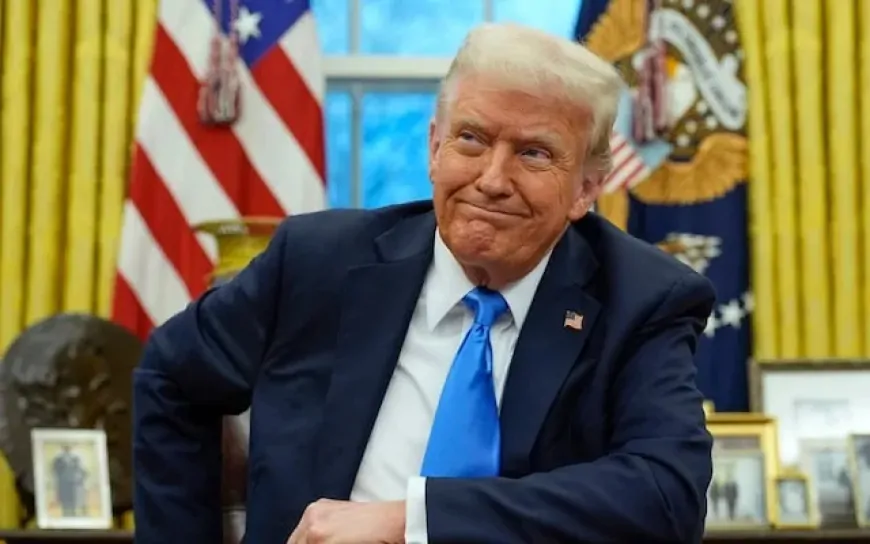Trump’s Tax Cut Plan Risks Pushing U.S. Debt to $7 Trillion, Global Finance Experts Warn
Trump’s proposed tax cuts may push U.S. debt to dangerous levels, triggering global investor concerns over inflation, borrowing, and market stability.

President Donald Trump’s plan to permanently extend his signature 2017 tax cuts has triggered renewed warnings from global financial experts, who say the move could place the United States on a dangerous fiscal path. The Institute of International Finance (IIF), which represents major banks and financial firms worldwide, has cautioned that locking in the tax cuts without new revenue sources could increase U.S. debt to unsustainable levels.
According to the IIF’s latest global debt analysis, making the Trump-era tax reductions permanent could raise the national debt from the current level of approximately 100% of GDP to 130% by 2034. That would mean an estimated $7.2 trillion in additional government borrowing over the next decade—placing further pressure on U.S. Treasury markets and long-term interest rates.
While the Trump administration argues that the tax plan will boost take-home pay for millions of Americans and stimulate economic growth, the IIF notes that such projections do not account for the broader budgetary implications. “Investor attention is increasingly shifting toward U.S. borrowing levels, which could see significant changes unless credible new sources of revenue are introduced,” the report stated.
Trump is lobbying Congress to pass what he calls “one big, beautiful bill” to extend the cuts, promising it will create or protect over four million jobs and increase average household income by up to $5,000 a year. Originally targeting Memorial Day to pass the legislation, the timeline has been pushed back to July 4. The 2017 tax cuts are set to expire at the end of this year.
Republicans are working to finalize a plan that not only keeps the cuts in place but also aims to reduce the federal deficit. However, the IIF expressed skepticism about relying on tariffs and spending reductions to make up for lost revenue. It calculated that even if the administration implemented a 10% blanket tariff on imports and made deep cuts through the Department of Government Efficiency (Doge), the combined savings would still fall short—yielding only around $3.3 trillion by 2034.
“Despite claims that tariffs could generate up to $700 billion annually, there’s a real risk they could backfire,” the IIF warned, pointing to possible retaliatory trade measures from other nations and inflationary effects that would dampen consumer spending and revenue collection.
Furthermore, the IIF questioned the viability of Trump’s proposed “gold card” immigration program—which would grant permanent U.S. residency to foreign nationals who invest at least $5 million—saying it has “raised more questions than confidence” in terms of its fiscal benefit.
In response to mounting criticism, Treasury Secretary Scott Bessent has defended the administration’s approach. He argued that the combination of tax reform and regulatory rollback would drive long-term private investment and resilience in the U.S. economy. “Each time the American economy gets knocked down, it gets back up again—stronger than before,” Bessent said, describing U.S. financial markets as “anti-fragile.”
Nonetheless, the IIF's warning reflects growing concern among global investors that the U.S. may be approaching a critical tipping point. Without a concrete plan to control spending or raise revenues, the country could face rising borrowing costs, slower growth, and reduced investor confidence in the years ahead.
Also Read: Fed Chair Powell Faces Political Heat as Trump Blames Fed for Slowing Economy































































